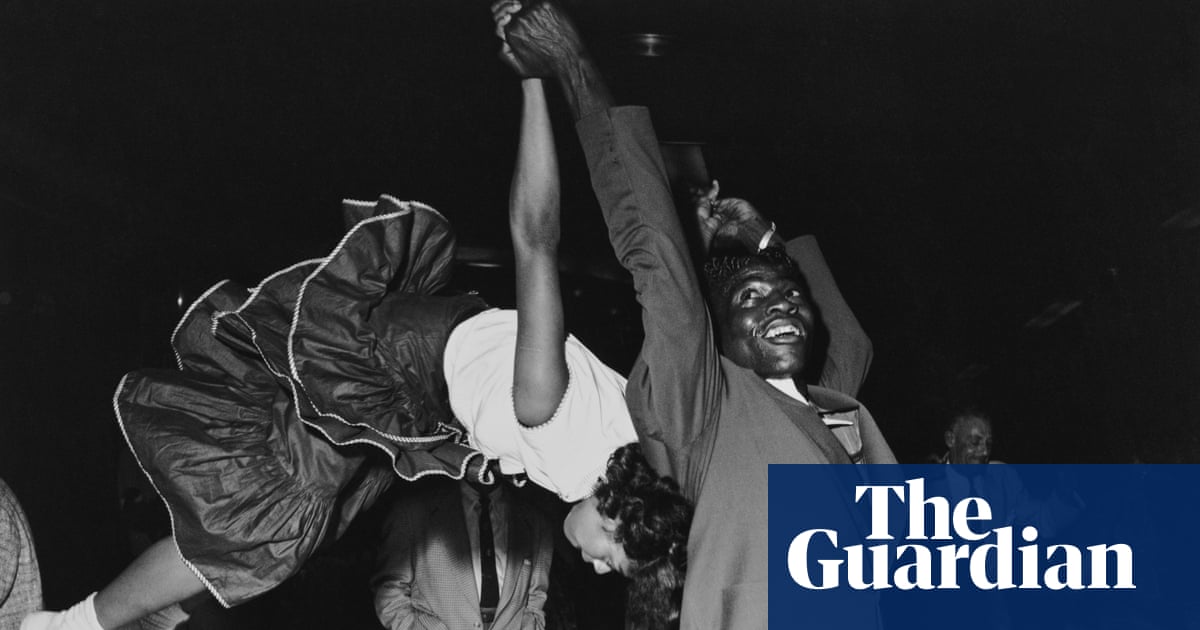Everything is connected in Shadow Ticket, Thomas Pynchon’s fleet-footed noir fiction about a lindy-hopping detective in prohibition-era Wisconsin. The homemade bomb connects to the runaway cheese heiress, the cheese heiress to the federal agents, and the feds to the pro‑Nazi leagues at the bowling lanes outside town. Early-30s Milwaukee, in turn, is connected to powder-keg central Europe, where paramilitary groups have pitched camp on the Hungaro-Croatian border and guest speakers wax lyrical about “our immense fascist future”. Most likely it connects to the current moment as well, albeit wryly and slyly, with a nonchalant swing. That’s the implied final move of this merry dance of a book: the point where the past links its hands with the present.
Shadow Ticket is a Pynchon novel – the 88-year-old’s first in 12 years; his ninth overall – and so it naturally connects to the man’s back catalogue, too, and its abiding fascination with conspiracy, chaos and the churn of American pop culture. Specifically it relates back to his two previous works – Inherent Vice and Bleeding Edge – in that the story comes tailored as a dime-store whodunnit, complete with red herrings, plot twists and reams of hard-boiled dialogue. But classifications, like people, are never entirely to be trusted. Pynchon inhabits the genre like a hermit crab inside a mollusc shell, periodically peeking out from the gloom to remind us that he’s there.
Our Bogart-esque hero is Hicks McTaggart, a semi-professional dancer turned strikebreaker turned dogged, compromised private dick, toiling to hold his position against a surge of rascally clowns and unreliable sources. Hicks is on the trail of Daphne Airmont, the missing heiress, but something about the woman smells iffy, and it may not be the cheese. There are Nazi sympathisers in the halls of power and an Austro-Hungarian U-boat running guns across Lake Michigan. Milwaukee contains Italians, Croatians and “more Germans than you can wave a knockwurst at”, which means that the city’s loyalties are conflicted and it could break either way. The New World, Hicks learns, remains umbilically tied to the old.
after newsletter promotion
All things are connected; that doesn’t mean they add up. Pynchon’s livewire prose hops from subject to subject, joins the dots and makes patterns. There is a pleasing logic to patterns, but they rarely provide explanations, never mind neat solutions; every fresh leap kicks up still further questions. And so it is with the widening gyre of Hicks’s investigation, which spins out of Milwaukee to cross the Atlantic, as spies are gazumped by counterspies and the plot gains in flavour what it loses in momentum. Airmont’s millionaire father styles himself “the Al Capone of Cheese” and is wanted for his role in a counterfeit cheese operation. “Cheese Fraud being a metaphor of course, a screen, a front for something more geopolitical,” explains Egon Praediger, the elegant, coke-sniffing Viennese cop who may turn out not to be a policeman at all. Detective mysteries home in, whereas Pynchon stories unravel. The author respects the genre enough to pay lip service to its rules. But he’s geared towards irresolution and leaves his private eye hanging, blindsided and lost.
Prime Pynchon – the Pynchon of Gravity’s Rainbow, let’s say, or the jubilant Mason & Dixon – might have interrogated this material with more rigour; mined its component parts for more gold. Shadow Ticket, conversely, runs wide but not deep, skipping from inner-city Milwaukee to the forests of Transylvania and from one espionage plot to the next. The tone is jaunty and joking in the manner of a bustling Tintin adventure in which bombs are wrapped as Christmas gifts and the goons look so comical that one assumes they must be harmless. It’s 1932, at least on the page, and so the yarn comes salted with references to contemporary figures: Sacco and Vanzetti, Walter Winchell and the Lindbergh baby. But it also veers from the record and succumbs to sudden scenic detours. In one exuberant set piece, two characters visit the local cinema to watch an entirely fictional gastronomic comedy, Bigger Than Yer Stummick, that stars “child sensation Squeezita Thickly” as the food commissar and Wallace Beery as a chef with “a big soup-soaked moustache”. The movie, the pair agrees afterwards, is altogether too long but somehow not quite long enough.
As for Shadow Ticket itself, the book is an antic mixed bag, a diverting tour of old haunts. Pynchon’s yarn sets out with a song in its heart and mischievous spring in its step, but it edges into darkness and its final forecast is bleak. The writer knows what’s to come and where this roll of foul history will eventually lead: towards a clownish world order epitomised by men such as Elon Musk, who recently boarded a Wisconsin stage with a cheesehead hat on his head and the American flag at his back. Cheese fraud is a front and period details provide cover. But the fascist past isn’t dead, it’s stinking up the joint right this minute.
